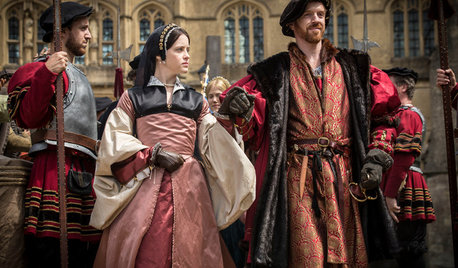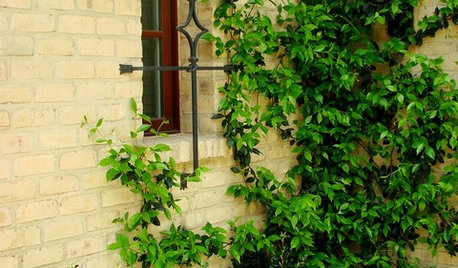Elizabeth I
timallan
14 years ago
Related Stories

ARCHITECTURE‘Wolf Hall’ Style: The Secrets of Tudor Architecture
As American audiences watch a new TV series about the politics of Henry VIII, we explore the elements of his era’s distinctive style
Full Story
HOUZZ TOURSHouzz Tour: Hollywood Haven for a Celeb and Family
Comedy is hard, but actor Joel McHale's spacious redesigned home in California is easy on the eyes
Full Story
KITCHEN DESIGNDisplaying Kitchen Supplies — Hot or Not?
Do some kitchens just beg for a cozy row of canisters and gear for all to see? Have a look and let us know what you think
Full Story
FLOWERSGreat Design Plant: Bush Anemone
Breathe in this shrub's sweet perfume while you're admiring its petite white flowers and the butterflies it brings
Full Story
ARCHITECTUREArt Deco Elements Create a Contemporary Flap
The rich colors and angled forms of this retro style are still jazzing up interior designs in all manner of homes today
Full Story
LIFEHow Your Landscaping Can Keep Burglars Away
Prevent home break-ins with strategic landscaping and good practices instead of menacing — and maybe less effective — measures
Full Story
DECORATING GUIDES12 Deadly Decorating Sins
Are your room designs suffering from a few old habits? It may be time to change your ways
Full Story
BUDGET DECORATINGDumpster Decorating: Furnishing Your Home With Repurposed Pieces
Whether you call them reclaimed or recycled, these furnishings honor our pocketbooks and our planet
Full Story
PRODUCT PICKSGuest Picks: Get Beachy With a Casual Coastal Living Room
Live easy in a room full of natural textures and colors borrowed from the sand and sea
Full Story



dido1
veer
Related Discussions
Elizabeth Blueberry
Q
Will have rooted pink (Queen Elizabeth?) roses this fall.
Q
Do you do something that no one else does?
Q
Quotes Sept, 7, 2018
Q
woodnymph2_gw
timallanOriginal Author
veer
timallanOriginal Author
woodnymph2_gw
J C
veer
woodnymph2_gw
veer
ccrdmrbks
woodnymph2_gw
timallanOriginal Author
woodnymph2_gw
veer